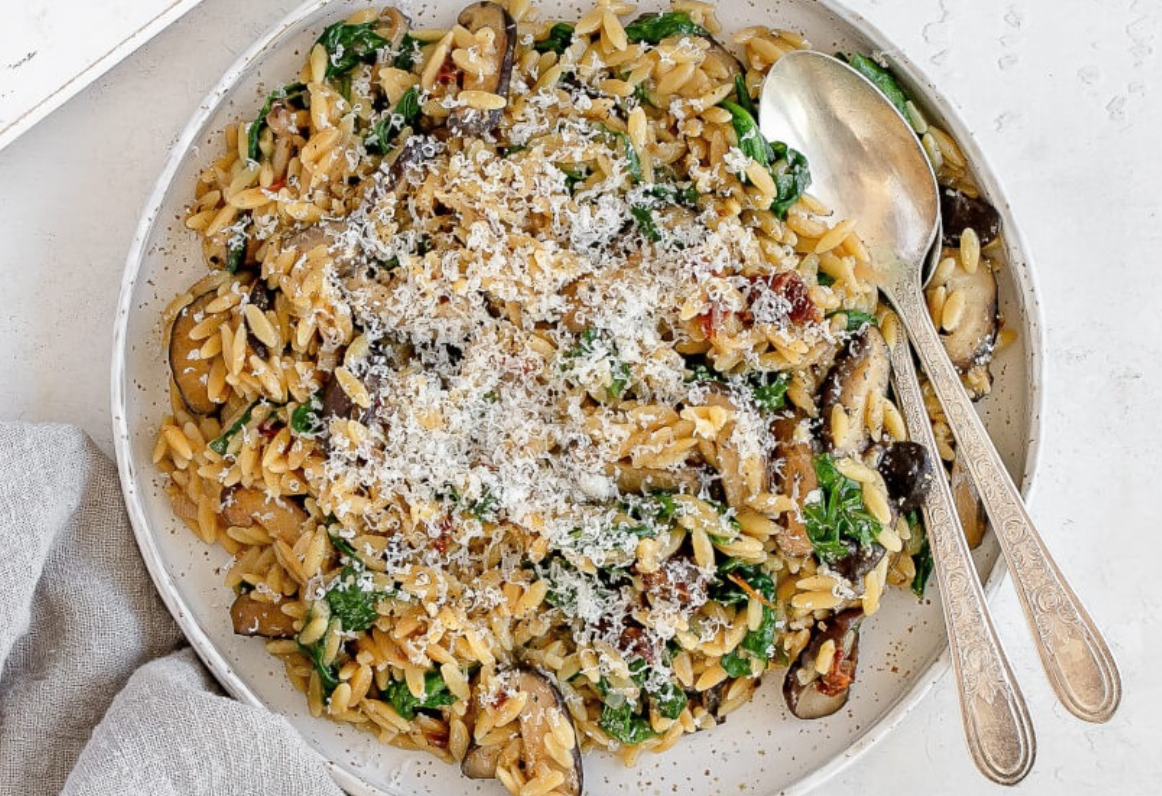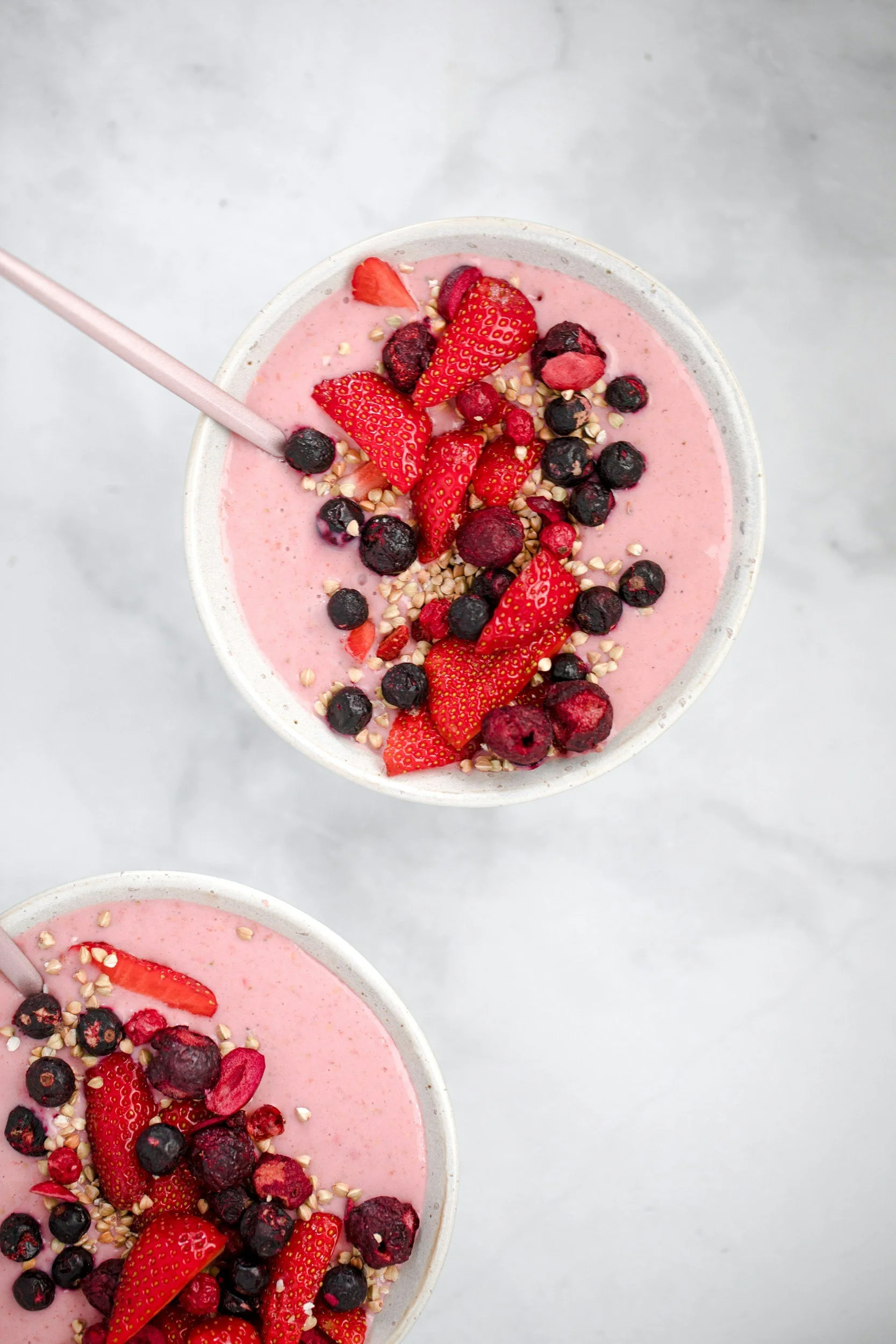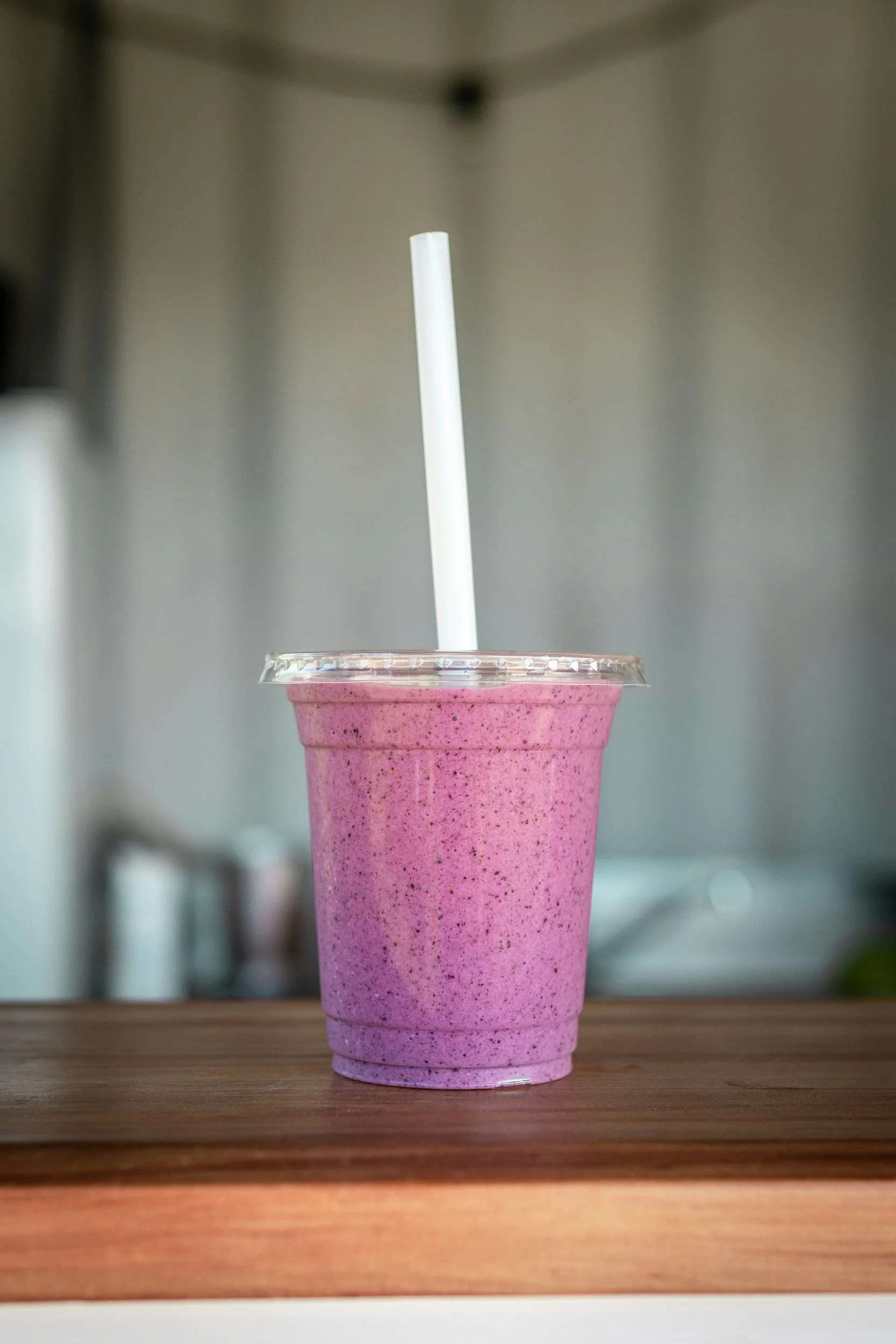Anti Inflammatory Diet: What It Is And How To Begin
/What is an Anti-Inflammatory Diet and Why is it Gaining Traction?
By Margot Rutigliano, CPT, CHC, Pn2 | Founder of Vita Vie Retreat
Healthy living and improved health are topics we discuss at our wellness retreats on a weekly basis. In the world of health and nutrition, the term "inflammation" has become a buzzword—and for good reason. While inflammation is your body’s natural response to injury or illness, chronic inflammation can lead to a host of health problems, from heart disease to autoimmune disorders. This has led to the rise of the anti-inflammatory diet, a way of eating that focuses on foods known to reduce inflammation in the body. For many, this is not a conscious decision but one that’s been gravitated to due to the state of our most available and inexpensive foods.
An anti-inflammatory diet emphasizes whole, nutrient-rich foods like fruits, vegetables, whole grains, nuts, seeds, and healthy fats. By minimizing processed foods, sugars, and unhealthy fats, this approach helps to lower inflammation, support overall health, and prevent chronic diseases.
The reason this diet is gaining so much traction is simple: it’s backed by science and delivers real results. As more people become aware of the links between chronic inflammation and serious health conditions, the anti-inflammatory diet offers a proactive way to protect against these risks. It's not just a diet; it's a lifestyle shift that can lead to a longer, healthier life.
In recent years, the Mediterranean diet has become more than just a culinary trend—it's been celebrated for its powerful health benefits, particularly its role in reducing inflammation. Inflammation is your body’s natural defense mechanism, but when it becomes chronic, it can contribute to a variety of health issues such as heart disease, diabetes, arthritis, and even certain cancers. An anti-inflammatory diet, like the Mediterranean diet, can help combat this silent threat, promoting long-term health and wellness.
CAUSES OF INFLAMMATION
Inflammation is the body's natural response to injury, infection, or harmful stimuli. It is an essential part of the healing process, but when inflammation becomes chronic, it can contribute to a range of health issues. Here are just a few of the main causes of inflammation and they happen to be elements that are within our control:
Poor Diet:
Processed Foods: Diets high in processed foods, refined sugars, and unhealthy fats (like trans fats) can trigger inflammation. Common culprits include sugary snacks, sodas, fried foods, fast food, and processed meats.
Excessive Omega-6 Fatty Acids: Consuming too many omega-6 fatty acids (found in many vegetable oils like corn, soybean, and sunflower oil) without balancing them with omega-3s (found in fish, flaxseed, and walnuts) can promote inflammation.
Food Sensitivities and Allergies: Foods that you are sensitive or allergic to (like gluten, dairy, or certain nuts) can trigger an inflammatory response in the body.
Chronic Stress:
Prolonged stress can increase levels of cortisol and other stress hormones, which in turn can lead to systemic inflammation. Chronic stress also weakens the immune system and can exacerbate inflammatory responses to injuries, infections, or allergens.
Lack of Physical Activity:
A sedentary lifestyle can lead to weight gain, poor circulation, and decreased muscle function, all of which can contribute to inflammation. Regular physical activity helps reduce inflammation by improving circulation, boosting metabolism, and reducing body fat.
Excess Body Weight:
Being overweight, particularly having a high amount of visceral fat (fat stored around the organs), is a significant contributor to inflammation. Adipose tissue produces inflammatory cytokines and adipokines, which can promote chronic inflammation throughout the body.
Smoking and Alcohol Consumption:
Smoking: Tobacco smoke contains chemicals that irritate and damage the lungs and other tissues, leading to inflammation.
Alcohol: Excessive alcohol consumption can damage the liver and other organs, triggering an inflammatory response. Even moderate drinking can increase inflammation if it is accompanied by other risk factors like poor diet or stress.
The Science Behind the Anti-Inflammatory Benefits
Chronic inflammation is linked to many diseases that plague our modern world. Enter the Mediterranean diet - it’s rich in antioxidants, healthy fats, and fiber, helps to lower inflammation by providing your body with the nutrients it needs to function optimally. Key components of the diet, such as omega-3 fatty acids from fish, polyphenols from fruits and vegetables, and monounsaturated fats from olive oil, work together to reduce inflammatory markers in the body.
These nutrients help to:
Neutralize free radicals: Antioxidants found in fruits and vegetables neutralize harmful free radicals that cause inflammation.
Improve gut health: Fiber-rich foods promote a healthy gut, which plays a crucial role in controlling inflammation.
Support heart health: Healthy fats, especially from olive oil and fish, reduce the risk of heart disease by lowering cholesterol levels and improving blood vessel function.
Who Can Benefit from an Anti-Inflammatory Diet?
An anti-inflammatory diet is beneficial for almost everyone, but it can be especially life-changing for those who are dealing with:
Chronic conditions: Individuals with heart disease, diabetes, arthritis, or other inflammatory conditions can see significant improvements in their symptoms.
Weight management issues: By reducing inflammation, this diet can help in achieving and maintaining a healthy weight, which in turn reduces the risk of obesity-related diseases.
Those looking for overall wellness: Even if you're not suffering from a chronic condition, reducing inflammation with your diet can lead to better longevity, boosted energy levels, and enhanced mental clarity.
Nutrition is the first, most important line of defensE for Inflammation:
Chronic inflammation is a key contributor to various health conditions, including heart disease, diabetes, arthritis, and certain cancers. The right nutrition can help combat this by:
Providing essential nutrients that support the immune system
Maintain a healthy gut
Reduce oxidative stress
An anti-inflammatory diet emphasizes not only reducing foods that may trigger inflammation but also incorporating nutrient-rich foods that help keep inflammation in check, support overall health, and promote longevity.
Essential Tools for an Anti-Inflammatory Diet
Anti-Inflammatory Foods List: Start with a list of foods known for their anti-inflammatory properties. Key foods include:
Fruits and Vegetables: Leafy greens (like spinach, kale), berries (blueberries, strawberries), and cruciferous vegetables (broccoli, Brussels sprouts).
Healthy Fats: Olive oil, avocados, nuts (almonds, walnuts), and seeds (chia, flax).
Lean Proteins: Fish (especially fatty fish like salmon, mackerel), tofu, and legumes.
Whole Grains: Oats, quinoa, brown rice, and barley.
Herbs and Spices: Turmeric, ginger, garlic, and cinnamon.
Meal Planning Tools: Planning meals ahead helps ensure you incorporate anti-inflammatory foods into your diet consistently. Use meal planning apps or printable planners to organize your weekly menus, shopping lists, and prep schedules.
Anti-Inflammatory Recipes: Utilize anti-inflammatory recipes and snacks. These can provide inspiration and ensure variety in your diet. Look for resources that categorize recipes by meal type, ingredients, or inflammation-fighting nutrients.
Supplement Guide: While a well-balanced diet should provide most nutrients, some supplements, like omega-3 fatty acids, vitamin D, and probiotics, may help reduce inflammation. Consult a healthcare provider for guidance on the best supplements for your specific needs.
Mindful Eating Techniques: Incorporate mindful eating practices to reduce stress, which is a known inflammatory trigger. Techniques include:
Eating slowly and without distractions.
Focusing on the flavors, textures, and aromas of your food.
Practicing gratitude before meals to promote a positive mindset.
Hydration: Proper hydration is essential for the absorption of nutrients. Staying hydrated is crucial for maintaining proper bodily functions and flushing out toxins.
Paying Attention to Your Body's Biomarkers: Understanding how your body responds to certain foods is crucial for a personalized anti-inflammatory diet. Biomarkers, such as blood sugar levels, cholesterol, inflammatory markers (like C-reactive protein), and even gut health indicators, can provide insight into which foods work best for your body and which may trigger inflammation. Consider using:
Regular Lab Tests: Regular blood work can track key biomarkers of inflammation and help assess how your body is responding to dietary changes.
Wearable Health Devices: Devices like glucose monitors or fitness trackers that measure heart rate variability (HRV) and sleep patterns can provide real-time data on how your body responds to certain foods and stress levels.
Food Sensitivity Tests: Tests for food allergies or sensitivities can help identify specific foods that may cause inflammation for you.
Symptom Diary: Keep a diary of how you feel after eating certain foods—note any digestive issues, fatigue, joint pain, or skin reactions. This can help identify patterns and trigger foods that you might not immediately recognize.
Keep Going: Your Next Steps
Want to dive deeper? Here are a few resources to keep the momentum going:
📌 Related Posts
5 Anti-Inflammatory Meals to Support Your Health and Wellness
5 Blood Sugar Management Hacks to Boost Energy and Balance Your Health
✓ Done-for-You Guides
50 Anti-Inflammatory Meals → 50 done-for-you recipes
Mediterranean Diet Refresh → fully guided Mediterranean Diet experience for weight loss & wellness
which diet is best?
Essentially, it’s important to find what works for you. That being said, following an anti-inflammatory protocol is one of the most effective ways to support your body, reduce flare-ups, and improve overall well-being. This style of eating focuses on whole, unprocessed foods that calm inflammation rather than trigger it. Think lean proteins, colorful fruits and vegetables, high-quality fats, and nutrient-dense carbohydrates that help balance blood sugar and support immune health.
It doesn’t mean eliminating everything you enjoy—it’s about learning which foods nourish your body and which ones may be contributing to inflammation.
Here’s a sneak peek into what a day on an anti-inflammatory diet might look like:
Breakfast: A warm bowl of oats with blueberries, chia seeds, and a drizzle of almond butter.
Lunch: A colorful plate of grilled chicken (or wild salmon), leafy greens, roasted sweet potatoes, and avocado.
Snack: Sliced cucumber and carrots with hummus or a handful of walnuts.
Dinner: Baked salmon (or grass-fed beef) with quinoa, sautéed greens, and roasted root vegetables.
Dessert: A few squares of dark chocolate with fresh raspberries.
When you approach your meals this way, you’ll naturally crowd out inflammatory foods and support your body in healing from the inside out. If you’re ready to take the guesswork out of it, our Autoimmune Recipe Bundle is filled with nourishing, anti-inflammatory recipes that make this lifestyle both simple and delicious.






















